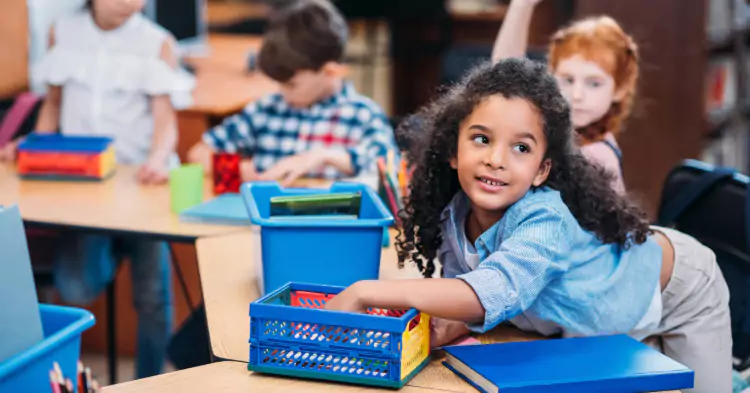By Dr. Elisabeth O’Byron
Family engagement in learning is an evidence-based solution that advances equitable educational outcomes for students. It promotes wide-ranging benefits, from decreased levels of chronic absenteeism to improved social and emotional skills to increased graduation rates.
The Ground Reality
While teachers are in a unique position to catalyze family engagement, many teachers have not had the pre-service training or in-service professional development needed to effectively engage with families. Indeed, on-the-job opportunities for teachers to learn and practice are limited, and only 51% of educator preparation programs offer at least one standalone course in family and community engagement for aspiring teachers.
The result? Fewer than 40% feel adequately trained in the core competencies necessary for engaging families.
Addressing this training gap is essential. As teachers grapple with often overwhelming demands and stressful working conditions and schools struggle with teacher retention, a strong academic partnership with students’ families can help make teachers’ jobs easier. Through regular, learning-focused communication with families, teachers can activate other highly invested adults as supportive partners. Families are eager and ready. They want more information about what their children are learning and how to support that learning at home. They want to hear that information from their most trusted source: their child’s teacher.

Where Is the Gap?
Given their limited time and the many and varied tasks that teachers are responsible for (including engaging their students’ families), it is all the more critical that teachers are aware of the most impactful family communication strategies. A nationally representative survey of teachers found that a typical teacher works a median of 54 hours per week, with 2 of those hours each week spent on communication with families.
Inadequate training results in low awareness, implementation, and prioritization of effective family engagement strategies during that “family engagement” time. Lower-impact family engagement activities like performances, and general newsletters are more likely than higher-impact activities that directly affect student learning outcomes, such as sharing data on students’ academic skill levels and ways that families can reinforce classroom learning outside of school.
Closing the Gap
Fortunately, we know that targeted training can effectively build the critical capacity of teachers to engage in high-impact engagement with families. A meta-analysis examining the impact of family engagement-focused teacher training programs revealed positive effects on teachers’ attitudes (e.g. perspectives of family efficacy for engagement), and knowledge (e.g. strategies to welcome and invite families as partners), and practices (e.g. sharing resources that support home-based learning).

There is a growing movement focused on improving educator preparation in family engagement. California recently passed new educator preparation standards to include a focus on family engagement that will significantly impact the profession over the next decade. And, the National Association for Family, School, and Community Engagement’s new Educator Preparation Framework for Family and Community Partnerships provides critical guidance to leaders in educator preparation programs, state agencies, schools, community organizations and educational systems.
Through comprehensive efforts to support teachers both before and during their professional careers, high-impact engagement can be integrated and prioritized in a way that benefits the whole school community.
Dr. Elisabeth O’Bryon is the Chief Impact Officer and Co-Founder of Family Engagement Lab (FEL), a national nonprofit and leader in the advancement of learning-centered family engagement serving PreK–12 school systems. Elisabeth has a doctorate in psychology and experience providing school psychological services to preschool through high school-age students in both English and Spanish.

